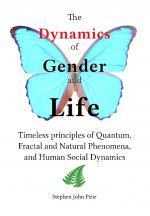[ © Dr Johanna de Groot 2008]
Introduction
Most basically this term comes from the Greek god ‘Hermes’ who functioned as the messenger between gods and earthlings or beings under the earth. He was therefore the communicator or the link between the one sending the message and the receiver of the message. Hermeneutics describes, then, the process of perception, i.e. all the environment provides the stimuli or the messages and the human person receives and interprets and comes to an understanding.
Since we all come to any particular situation with preconceived ideas, the philosopher Martin Heidegger taught that in interpretation the process of the shedding of one fore-project for the next, provides us with a continual expansion of our understanding. It is fundamental that both the giver and the receiver of the message have an open mind towards the world. Openness is required before truth unfolds and at the same time, as truth unfolds, it produces openness. Here we have what is known as ‘hermeneutical circularity’. This process is also shown to be operative in communication by the biologists Maturana and Varela who demonstrated that languaging between human beings transforms them.
Importance
For the sake of sanity we need to return to the centrality of the human person in the search for truth and wisdom. Far too great a burden has been placed on science to provide human beings with the answers to the ‘big questions’. Hermeneutics is the way forward in that it gives due importance to the full breadth of human inquiry in a fully human manner.
In hermeneutics no preconceived study formats are required, nor mathematics, nor is there an unequal relationship between the inquirer and the responder/other/environment. As Hans Georg Gadamer has said, ‘whenever something is experienced, whenever unfamiliarity is overcome and the shedding of light occurs or the coming of insight and appropriation, what takes place is the hermeneutic process of ‘truth’ being translated into the word and into the common consciousness.’ Hermeneutics can therefore be said to consist of the natural penchant of humans to ask questions (voiced or unvoiced) and the natural function to perceive, interpret, understand, shift one’s mental parameters and so grow.
Being a totally intrinsic function of all human beings, hermeneutical inquiry is a manner of pursuing truth and wisdom that can function as an umbrella for all efforts to seek truth including scientific inquiry. It would be advisable, of course, in more formal and important inquiries that a mechanism is used to establish the credibility of the data. (Cf. my ‘Ladder of Credibility’ article in this website).
The Hermeneutical Circle
Much work has been done in applying hermeneutics in particular fields. For example, in grammar it was noticed that the focus of the human mind did a continual ‘to-ing and fro-ing’ from one particular word in a sentence to the whole sentence, back to another word, then back to the whole sentence, until all words had been checked out and the meaning of the sentence was clear. It became clear that each word had to be ‘put in context’ before one could be sure of its meaning. This was first called the ‘hermeneutical circle’ by the Greeks.
In more recent times the process of inculturation has been demonstrated to involve the hermeneutical circle. Here the person who crosses from their own culture into another which they have never experienced, focuses first on a particular (strange) experience, perhaps a foreign language, but then checks with his own internal world, then focuses on the next (strange) experience, perhaps a foreign coin with which to buy food, but then checks with his own internal world again. This circular movement of the human function of perception, interpretation, understanding, repeated hundreds of times, will lead eventually to an understanding of the foreign culture.
This may be described as the ‘Fusion of Horizons’ of the Inquirer with the Other or the now no longer strange Environment. This type of application of hermeneutics is possible across many fields, for example, the student who gradually fuses horizons with his chosen field of study over a number of years, the baby moving through the process of learning its native language, a government solving problems of adequate water provision and a company CEO solving worker ratios.
[All material on Hermeneutics taken from Dr Johanna de Groot's doctoral thesis ‘Hermeneutical Approaches to Mental Health Among the Marginalised’, University of New South Wales Library, 1993. Copyright, Dr Johanna de Groot]
 "The Dynamics of Gender and Life" ebook is now available at
"The Dynamics of Gender and Life" ebook is now available at